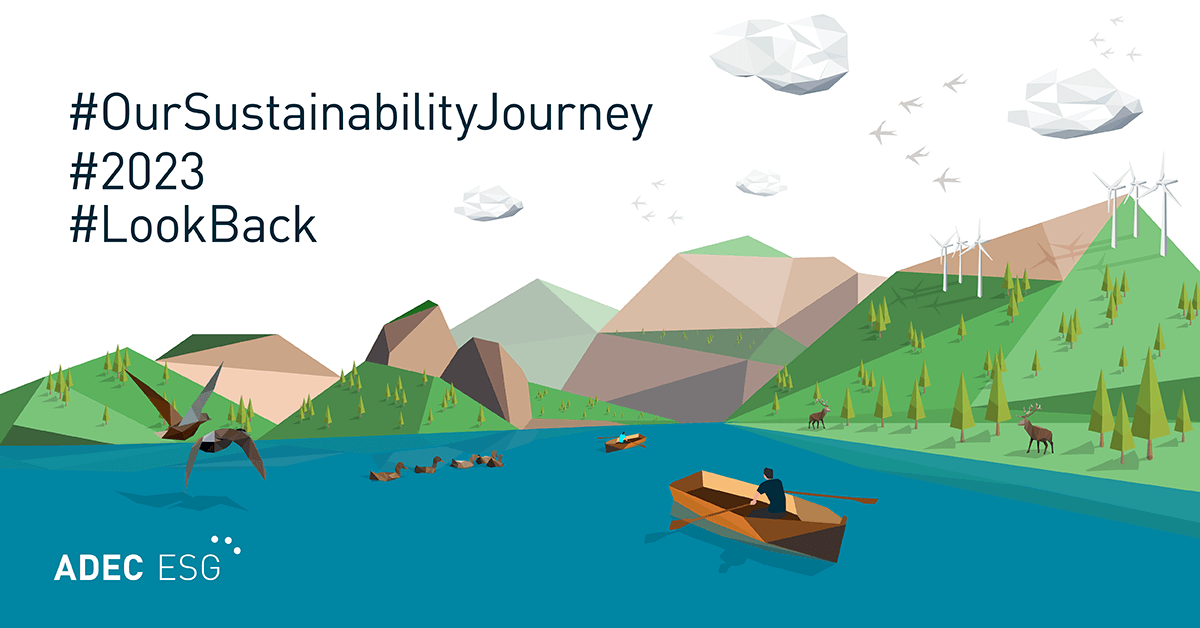 Over the last few years, sustainability has been changing the way firms conduct business. It has made its way to corporate board room discussions of large companies, including multinational corporations, and continues to make its way into the executive levels within small and medium businesses. No business organization is exempt from the impacts of waste management concerns, natural resource depletion, climate change and other environmental issues. There may be different areas of priority in each industry, and each company, but it all comes down to the increasing inevitable demand to drive sustainability initiatives and corporate social responsibility (CSR) within the business. At the end of the day, each organization must move towards a triple-bottom-line objective, that is PEOPLE, PLANET and PROFIT.
Over the last few years, sustainability has been changing the way firms conduct business. It has made its way to corporate board room discussions of large companies, including multinational corporations, and continues to make its way into the executive levels within small and medium businesses. No business organization is exempt from the impacts of waste management concerns, natural resource depletion, climate change and other environmental issues. There may be different areas of priority in each industry, and each company, but it all comes down to the increasing inevitable demand to drive sustainability initiatives and corporate social responsibility (CSR) within the business. At the end of the day, each organization must move towards a triple-bottom-line objective, that is PEOPLE, PLANET and PROFIT.
Challenging the Energy Efficiency Industry
As an emphasis on energy efficient products over the next decade is expected to drive an expanding use of digital power management in applications, the energy efficiency industry is also facing several challenges to answer the demand. According to a survey of executives by GTM Research, the efficiency industry, driven largely in 2013 by intelligent innovations such as energy management software and virtual audits, will face hurdles in financing, big data, education and accountability.
 And to counter these challenges, efficiency executives speaking to GTM Research have advised that better IT deployment, educating customers, creating better financing options and adjusting utility incentives will be critical to properly scale the efficiency market for the rest of 2014. This is therefore the time for players in this sector to consider a complete product line picture through production life cycle assessment. By evaluating the entire product life cycle which starts from the acquisition of raw materials down to its processing until production and distribution to sales points, companies in this sector will be able to identify where they save on resources, thereby reducing costs and increasing profitability. Once more resource and cost-effective measures have been identified and set in place; it will be easier to communicate these efforts to their respective customers – thereby upping their brand value and trust and ultimately, revenues.SMEs Follow the Bandwagon
And to counter these challenges, efficiency executives speaking to GTM Research have advised that better IT deployment, educating customers, creating better financing options and adjusting utility incentives will be critical to properly scale the efficiency market for the rest of 2014. This is therefore the time for players in this sector to consider a complete product line picture through production life cycle assessment. By evaluating the entire product life cycle which starts from the acquisition of raw materials down to its processing until production and distribution to sales points, companies in this sector will be able to identify where they save on resources, thereby reducing costs and increasing profitability. Once more resource and cost-effective measures have been identified and set in place; it will be easier to communicate these efforts to their respective customers – thereby upping their brand value and trust and ultimately, revenues.SMEs Follow the Bandwagon
It is not true that only large corporations find the value of incorporating CSRs or sustainability efforts in their businesses. A research conducted by Lloyds Bank Commercial Banking showed that a quarter of small businesses placed sustainability on their priority list for this year. However, according to the same research, while SMEs are quite comfortable undertaking traditional activities such as energy saving and recycling, these organizations have yet to recognize the need to adopt a broader range of sustainable business practices. The study found, for example, that SMEs are less likely to offer a clear business code of conduct (46%), work responsibly within a supply chain (42%) or operate an ethical sourcing policy (25%) A way of coming up with more impactful sustainability practices in small businesses is by analyzing the supply chain and identifying initiatives to improve environmental impacts. These can be achieved through the use of supplier scorecards, carbon accounting or a detailed life cycle assessment
What’s Cooking in the Food Industry?
Accordingly, in a survey conducted by the National Restaurant Association among nearly 1,300 professional chefs who are members of the American Culinary Federation, it was noted that the top restaurant trends this year are locally sourced food, sustainability and waste reduction.
 Similar to companies in the energy efficiency industry and the SME segment, the food industry has realized the need to address the increasing waste and greenhouse gas emissions and to adjust their raw material and other operational costs and even menu offerings. And to do so, food producers, manufacturers and providers have tried to search for alternative materials and be more transparent with information on their product labels. These two are but some of the CSR trends that are seen to emerge in the next few years within the restaurant industry, thus affecting how food offerings are sourced, cooked/ produced and packaged altogether.
Similar to companies in the energy efficiency industry and the SME segment, the food industry has realized the need to address the increasing waste and greenhouse gas emissions and to adjust their raw material and other operational costs and even menu offerings. And to do so, food producers, manufacturers and providers have tried to search for alternative materials and be more transparent with information on their product labels. These two are but some of the CSR trends that are seen to emerge in the next few years within the restaurant industry, thus affecting how food offerings are sourced, cooked/ produced and packaged altogether.
So why should companies undertake these sustainability initiatives?
Companies should understand the need to close the gap between consumer expectations and perceptions of their corporate social responsibility work, according to Craig Bida, executive vice president of cause branding and non-profit marketing for Cone Communications. By doing so, it can positively transform their brand and create more value and increase revenue.
With over 30 years of expertise in energy and environmental management, FCS has kept itself abreast with the latest trends that drive small and big firms coming from various industries. FCS can help firms optimize resources, programs and operations for maximum return on investment (ROI) and increased profitability by providing sustainability solutions. Click on the link below to request for a consultation with our corporate sustainability experts today.





